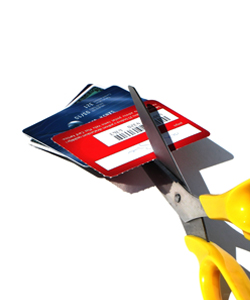Bankruptcy
Chapter 7 Bankruptcy
 Chapter 7 Bankruptcy is also known as a liquidation bankruptcy. It is designed to help individuals, married couples and their families get a fresh financial start. Many times the person or married couple filing for bankruptcy has unsecured debts such as credit cards which are eliminated or discharged by the Bankruptcy Court.
Chapter 7 Bankruptcy is also known as a liquidation bankruptcy. It is designed to help individuals, married couples and their families get a fresh financial start. Many times the person or married couple filing for bankruptcy has unsecured debts such as credit cards which are eliminated or discharged by the Bankruptcy Court.
The decision to file bankruptcy is can be quite stressful. Individuals and families are often embarrassed by their financial situation, but many times the circumstances leading to financial difficulties are outside of their control. Often bankruptcies are a result of sudden job loss, medical illness, and/or divorce. When these personal disasters strike, they create difficult and sometimes disastrous financial situations.
Our attorneys will analyze your situation and provide you with advice regarding whether filing for bankruptcy is in your best interest. Other options will be discussed including mortgage loan modifications, direct negotiations with creditors to reduce interest rates or principal owed and forbearance of payments for a period of time to allow the debtor to regain financial stability.
If it is determined that bankruptcy is the best option available to you, our attorneys will guide you through the process. We will help you determine what your assets and debts are. People often don’t think of the different kinds of debt that they have which can be discharged in a Chapter 7 bankruptcy including medical bills, utility bills, cell phone bills, credit card debt, and certain legal judgments.
However a Chapter 7 Bankruptcy does not eliminate all debts. You will still be responsible for certain kinds of debts including:
a. Child Support and other Family Support Agreements
b. Most Back taxes
c. Fraudulent debts
d. Government fines and penalties
e. Injuries you may have caused while driving under the influence
f. Student loans
Chapter 7 Bankruptcy allows debtors to protect personal property through the use of exemptions. We will review and categorize your assets to maximize the protection afforded to you by exemptions to ensure that you retain most if not all of your property as you progress through the bankruptcy process. Often the debtor’s house and car are protected and retained by the debtor. Of course, if you wish to retain these assets, you must continue to make mortgage or car payments to retain this property. Our attorneys can assist you in negotiations with the mortgage and auto loan companies so that you can make these payments and retain these important assets.
Under federal bankruptcy exemptions, you may be entitled to keep the following assets:
a. Your home with equity exemption of $20,200 otherwise known as the homestead exemption
b. Life insurance with a cash value of $10,775
c. Pensions and retirement benefits
d. Household items to a total of $10,775
e. Motor vehicle with equity exemption of $3,225
f. Tools for trade of $20,200
g. Wild card exemption of $1,075 for any property plus $10,125 of any unused homestead exemption
Filing Process
Our attorneys will guide you through the Chapter 7 filing process. Generally the process involves the following steps:
First, our attorneys will provide you with a basic overview of the different sections of the Bankruptcy Code and the requirements for filing for Chapter 7 Bankruptcy including filing fees, two mandatory counseling sessions the debtor must attend before and after the filing of the Bankruptcy petition, and fees for legal services.
Second, our attorneys will review your assets and debts with you to determine whether or not your situation satisfies the “means test”. If your income is below the household median income for families in Pennsylvania, you are eligible to file for a Chapter 7 bankruptcy.
Third, our attorneys will ensure that they have received all relevant information from you regarding your situation in order prepare your bankruptcy petition, schedules and statement of financial affairs. We will follow up with you with requests for information as needed so that your financial situation is accurately reflected in the documents filed with the Bankruptcy Court.
Fourth, if you haven’t already done so, you will attend a credit counseling course prior to filing for bankruptcy. You must attend this course no more than 180 days prior to filing for bankruptcy. Then we will file your bankruptcy petition and a Trustee will be assigned to your case. The filing for bankruptcy will prevent your creditors from collecting debts you may owe through an “automatic stay”. The stay preserves your property and halts creditors from seeking to collect on debts owed by you. Under certain circumstances, creditors may seek to lift the automatic stay but need approval of the Bankruptcy Judge in order to attempt to collect a debt.
Fifth, a Trustee is assigned to your case and will review the filing to ensure the accuracy of the filing and to determine whether it is a no asset case. The Trustee will schedule a Section 341 Hearing which is also known as a Meeting of the Creditors within 45 days of your bankruptcy filing. Our attorneys will represent you at this meeting and guide you through this step. Typically the Trustee will ask you questions under oath regarding your property and debts. If your bankruptcy petition and answers to the Trustees questions are satisfactory, then your responsibilities regarding your bankruptcy have likely been concluded. Any creditors who disagree with the elimination of your debts have 60 days after the Section 341 meeting to convince the Bankruptcy Court that you should be required to repay your debts. Usually in a no asset case, no creditors challenge the discharge of unsecured debts.
Sixth, within 45 days of the Creditors’ Meeting, you have to attend an approved financial management course. A certificate of completion must be filed with the court and this is usually the last filing needing to be made in your bankruptcy.
Finally, within 90 days of the Creditors’ Meeting, your debts will be discharged with an Order signed by the Bankruptcy Judge who is assigned to your case. Filing for bankruptcy can be a confusing, stressful situation. Our attorneys have the skill and experience to guide you through this process. Many times, individuals feel a great burden has been lifted after going through the bankruptcy process and are able to take advantage of the fresh start offered by Chapter 7 bankruptcy.



